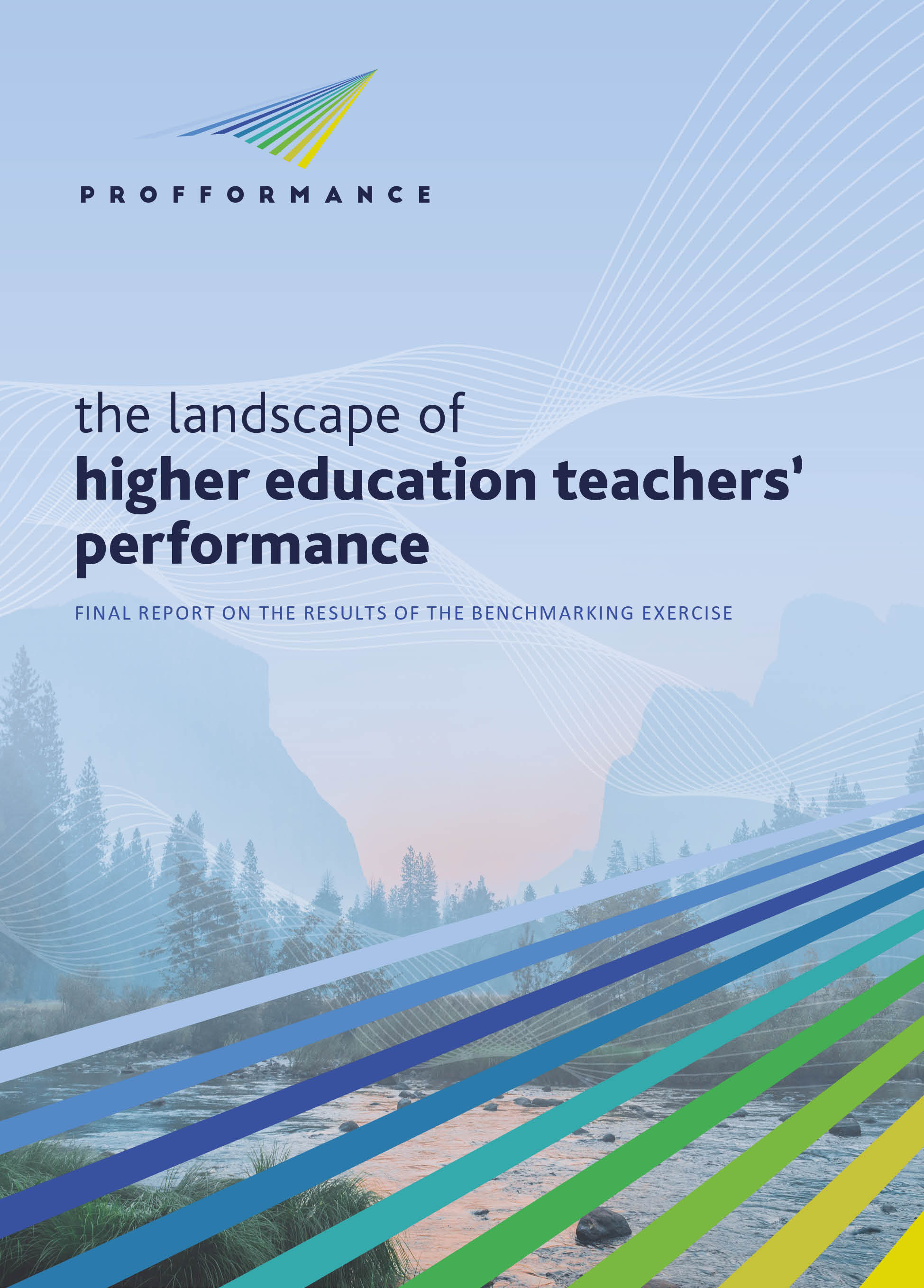Benchmarking
The landscape of higher education teachers’ performance
Final report of PROFFORMANCE benchmarking survey
The PROFFORMANCE consortium (profformance.eu) published the final report of the benchmarking survey conducted in November 2020 among 156 higher education institutions of its 6 partner countries (Austria, Czech Republic, Croatia, Georgia, Hungary, Serbia). The aim of the survey was to map institutional approaches to the quality enhancement and support of teaching and learning, regarding assessment systems, staff development and teacher training practices. The survey aimed to search for and identify good examples, best practices and lessons to be learned.
Methodology
The work has been already started in summer 2020, with Austrian leadership - the Bundesministerium für Bildung, Wissenschaft und Forschung (AT) and Günter Wageneder, University of Salzburg as a main lead of this task. The project leader Hungarian experts - Vilmos Vass, Metropolitan University and János Ollé, Pannon University- were also involved in the elaboration of the survey. Each partners and associated members delegated an expert for this working group, in order to assure that specificity and aspects both partners, stakeholders and European level are represented in the final product. During summer 2020, the following experts contributed to the finalisation of the survey: Bajzáth, Angéla Hungary, Beseda, Jan Czech Republic, Darchia, Irine Georgia, Filipa Casqueira Coelho Gabriel, Bárbara Portugal, Grodecki, Jakub ESU, Lam, Queenie ACA, Neavyn, Ruaidhri Ireland, Perényi, Petra Hungary, Savić, Mirko Serbia.
The questionnaire contained questions regarding the following areas:
- Learning and teaching strategy
- Student engagement
- National requirements and European trends
- Quality management and the evaluation and assessment of teachers
- Skills and competencies of teachers
- Teacher training and staff development
- Teacher and student support and incentives
As the questionnaire contained along with some close-ended questions a significant number of open questions and provided the possibility to attach connected materials, the profound and careful processing and analysis needed a considerable amount of time (around 242 pages of text answers and
185 documents with some 2.873 pages altogether). The outputs and results provide material for further workshops as well.
The online questionnaire was received by higher education institutions in the partner countries (Austria, Czech Republic, Georgia, Croatia, Hungary and Serbia) in early November 2021. More than 170 complete responses have been received by the deadline of 30 November, out of which 154 were evaluable.
The processing of responses has been started immediately by László Horváth ELTE with coordination of Günter Wageneder.
The final report was compiled by László Horváth, ELTE, Hungary, which contains the responses of the participating institutions, some theoretical backgrounds, best practices and recommendations for improvement of teachers’ performance and career management systems.
Main findings
In this PROFFORMANCE survey, among the respondent institutions, more than 83% stated possessing a dedicated strategy for the quality of teaching and learning, out of which 72% have a specific T&L approach. However, only 39% of the respondents report some influence of national or European requirements on their T&L approaches.
More than 87% of the respondents reported that there was a dedicated framework for the evaluation and assessment of academic staff.
Student evaluation of university professors’ performance is the most common practice to assess T&L quality at HEIs, still only one third of the institutions reported that students may benefit from this practice. Peer and stakeholder assessments of HEI teachers’ performance are less common practices than student evaluations, and the impact of these assessment types is low.
The answers indicated several shortages of effective assessment systems, for instance low response rate, poorly defined processes, lack of consequences or lack of communication of results and measures taken.
The survey responses show that while at entry, the most important skills and competences of teachers are qualifications, research performance and language skills, for promotion, internationalization, third mission and participation in staff development count more. Pedagogical skills and competences are assessed at less than half of the HEIs at entry-level and at one-third of HEIs for promotion.
Only 50% of respondents indicated that there is a staff development framework in place, which are mainly specific courses, trainings or workshops. Lack of time and motivation and the high workload have been mentioned as the most hindering factors of staff development.
The results of the PROFFORMANCE survey show that there is still significant potential for improvement
- in developing strategies at HEI level with more focused T&L approach,
- in implementing profound assessment and evaluation systems,
- considering a variety of roles of teachers during assessment,
- in involving different actors,
- and developing a coherent system of follow-up measures.
Upon examination of consistent data from a 360-degree assessment
- a well-designed teacher performance management and career path system should be elaborated,
- various forms of teacher training possibilities should be offered,
- new trends and priorities of national and EU policy documents should be better channeled into teachers' everyday practice.


















